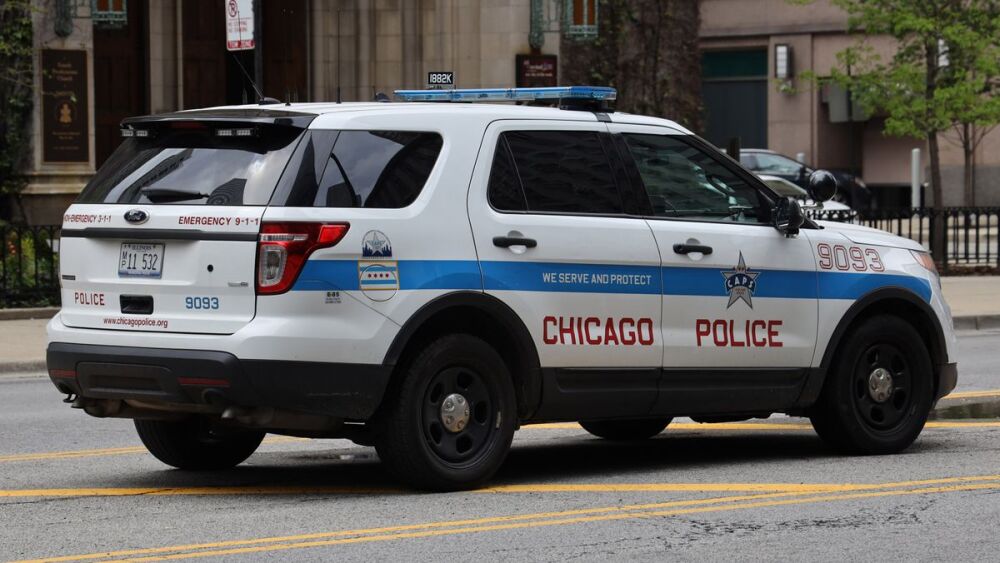By Annie Sweeney
Chicago Tribune
CHICAGO — City officials said have revised their plans for a new citywide response on emergency mental health calls to include nonpolice responder teams, an idea pushed hard for several months by activists and community leaders.
The plan for the so-called mobile crisis teams of clinicians and paramedics — without police — will now be part of a $1.7 million alternate response pilot to launch next year under the newly approved city of Chicago budget, city officials told the Tribune.
Activists, however, expressed immediate skepticism about how well thought out the plan is, and how committed officials really are to removing police from crisis response in the city.
“The fight for a publicly funded and operated mental health crisis response system, without police, will continue and only grow stronger beyond this budget cycle,” a statement on behalf of the organizations and activists read. “We will continue to push for a compassionate, trauma-informed mental health crisis-response system ... because this is what Chicagoans need and deserve.”
Under the new budget, $1 million has been allocated for the Department of Public Health to pay for the pilot, officials said. The rest of the money will come from the other public safety budgets.
In addition to the pilot, the city will also move ahead with its own plan for co-responder teams which do include police officers, as well as a paramedic and a mental health professional to respond together on calls. The Department of Public Health began looking at that plan months ago, studying about eight different departments around the country, and ultimately concluding that it was safer to have a police officer present at an emergency call.
But the movement to shift emergency mental health response away from police and toward clinicians has gained considerable steam amid the national conversation on policing. It is estimated that 1 in 4 fatal police encounters are with people experiencing a mental health crisis.
A police response to those in crisis — with sirens, uniforms, flashing lights and weapons — can escalate a situation. The issue is often escalated in communities of color, where distrust of police remains high.
The nonpolice pilot the city will now fund has the support of some 50 groups in the city. The groups modeled their plan off a program in Eugene, Oregon, demanding that Chicago set up a separate emergency telephone option — a 211 line — for residents to call for help with nonviolent crises.
Teams of paramedics and clinicians would then launch out of the city’s community health clinics.
Alderman Rossana Rodriguez Sanchez sponsored the ordinance, telling public health officials during budget hearings in early November that she considered it an “emergency” to get police out of mental health response.
Earlier this week, the city added the idea to an ordinance that also creates the co-responder model which does include police, saying the police department, advocates, clinicians and the community would work together to test each model’s effectiveness.
But the organizers are not persuaded that starting both plans together is the right move, pointing to a lack of specificity around how both concepts will launch.
“The language was undefined and unclear,” said Arturo Carrillo, director of violence prevention and health initiatives at the Brighton Park Neighborhood Council, who has also helped lead organization efforts around the nonpolice idea.
And left out of the plans was the 211 line, which tells Carrillo that the city will continue to overrely on the police.
“Police-first response is going to be the default,” he said. “The paradigm is not changing. People are calling 911 and police are still responding.”
Chicago Public Health Department Deputy Commissioner Matt Richards said the 211 line is not part of the new plans because officials still want any potential health-related emergency to be routed through 911 center. Richards insisted the crisis response teams would also be utilized, launched immediately to respond to calls that do not indicate a high level of risk.
“It’s defining which type of calls are appropriate to each model,” Richards said.
Under the pilot, the teams will be established in a handful of districts, based on volume of calls for mental health service, he said.
The $1.7 million will also pay for three clinicians to work inside the city’s 911 center to assist with calls that have a mental health component, something that health department officials hope will ensure the right team is dispatched to a call, Richards said.
“To avoid police taking over, you have clinicians involved in the beginning,” he said.
Richards said the new responder models are part of a larger effort to push mental health services to the places where there are people in need.
For example, the Department of Public Health also announced support for a new social service program that does medical outreach on the city’s transit lines.
During the pandemic outreach teams from The Night Ministry, a social service organization that targets the homeless population, fanned out to deliver direct care on train platforms along the Red and Blue lines, two of the Chicago Transit Authority’s busiest. The team, which includes a medical practitioner, was able to provide immediate medical care, conduct COVID-19 screenings and also refer passengers for services.
Richards said the city sees the program as a way to maybe reach people before they even need to call 911.
“We know the crisis system is not set up to address a person’s underlying social and health care needs,” he said.
Night Ministry Senior Vice President Erin Ryan said the organization has partnerships with clinics that provide psychiatric care and that outreach teams can also assist people with other behavioral or social services crises, such as substance abuse.
“Our programs are really designed to reach those who are disconnected and who are not getting served in the traditional system,” Ryan said.
___
(c)2020 Chicago Tribune












